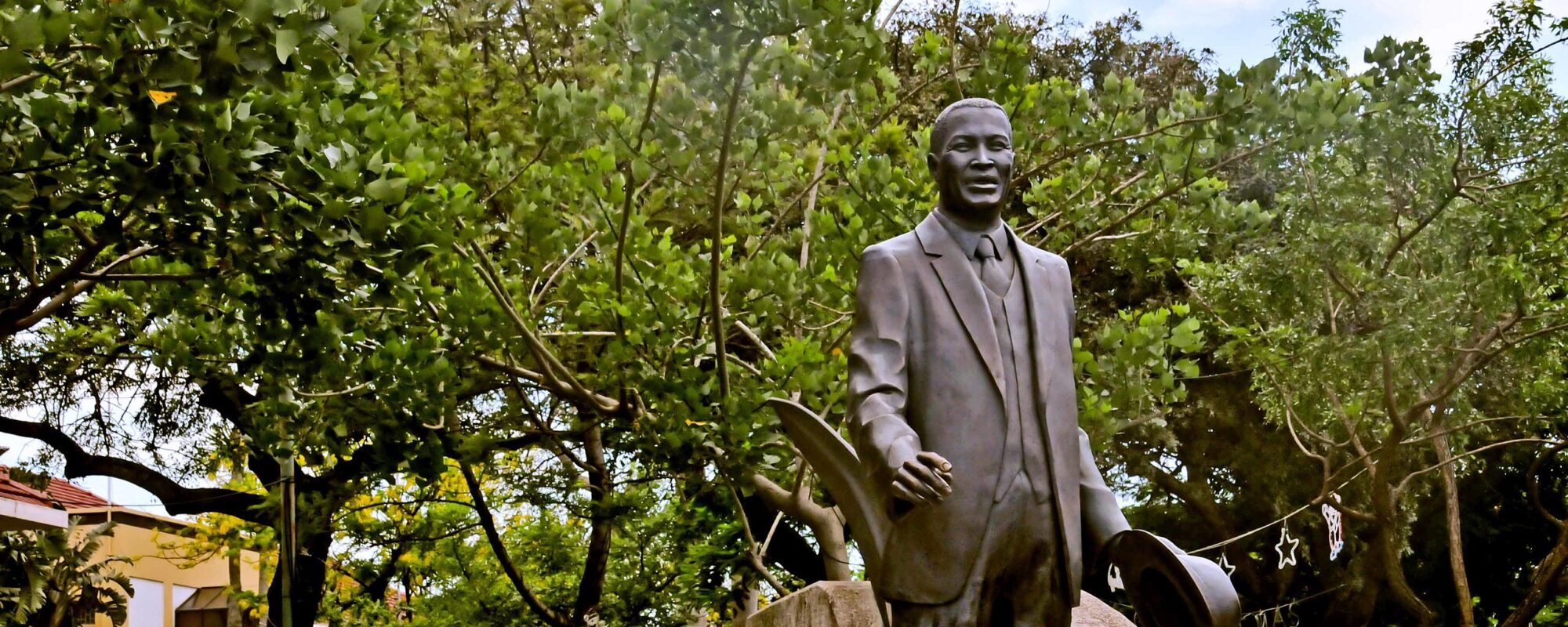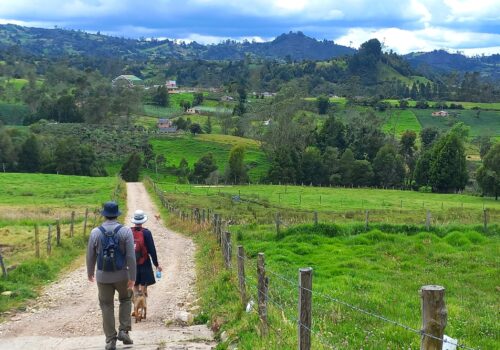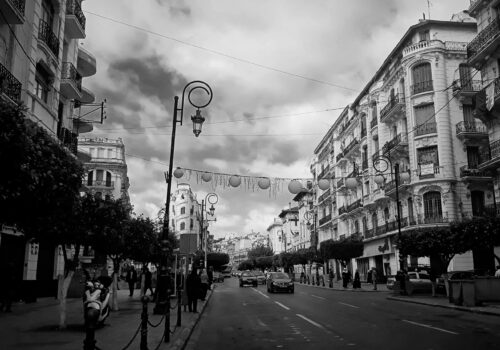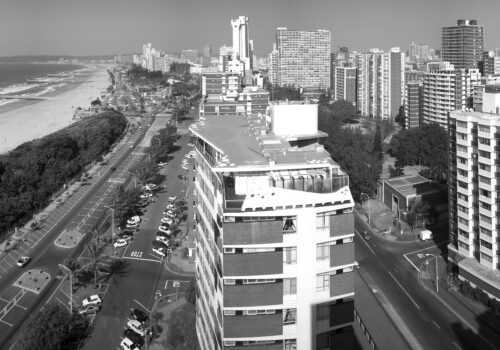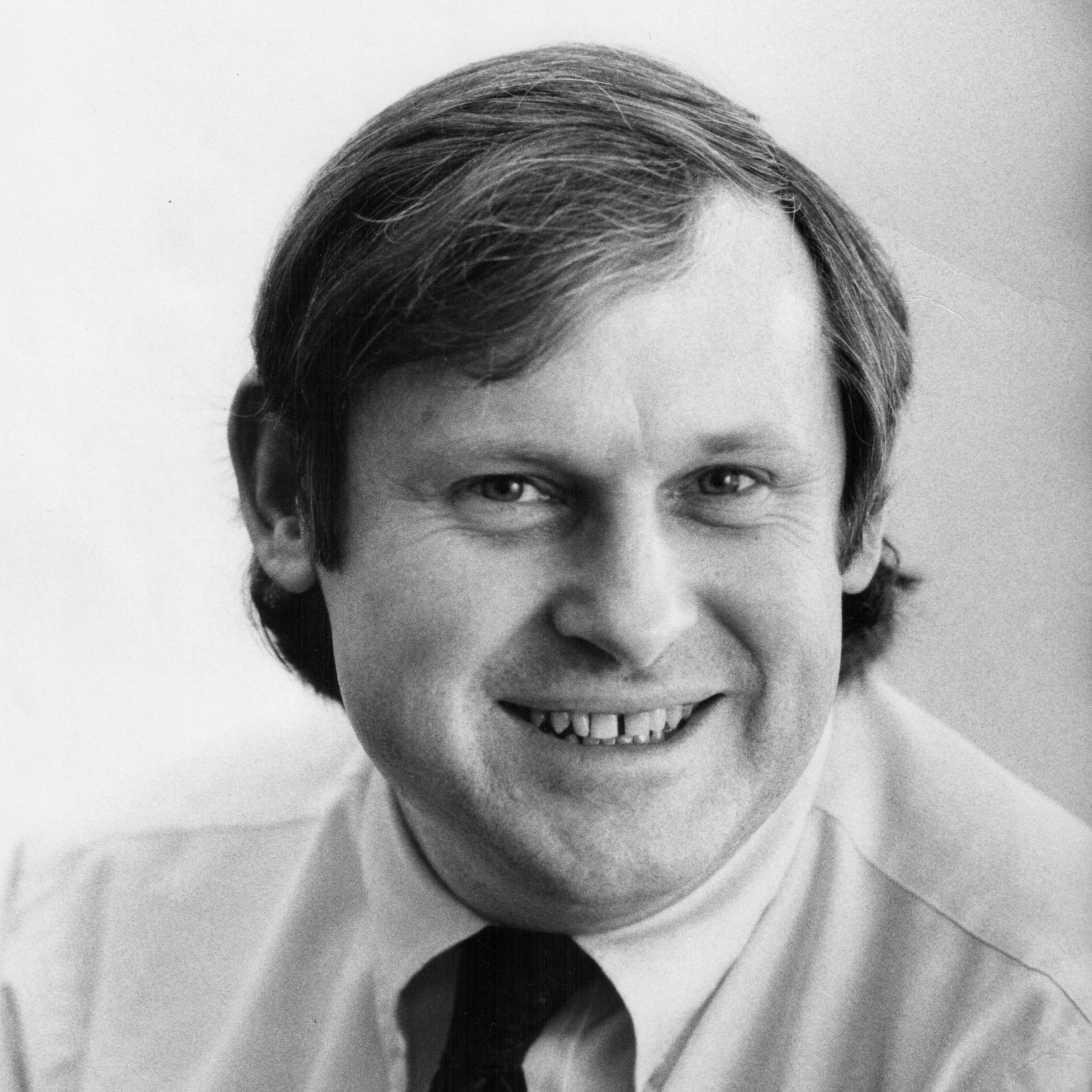 Peter Bird Martin was a correspondent, then senior editor for Time magazine and a founding editor of Money magazine before he became executive director of ICWA in 1978, tirelessly championing its mission for the next 27 years and mentoring 77 fellows. As a fellow from 1953 to 1955, he reported on social, economic and political issues of sub-Saharan Africa during decolonization.
Peter Bird Martin was a correspondent, then senior editor for Time magazine and a founding editor of Money magazine before he became executive director of ICWA in 1978, tirelessly championing its mission for the next 27 years and mentoring 77 fellows. As a fellow from 1953 to 1955, he reported on social, economic and political issues of sub-Saharan Africa during decolonization.
In this September 1954 dispatch from Johannesburg, South Africa, Peter reports on a secret meeting with the president of the African National Congress, Albert John Luthuli. At the time, Luthuli was an outlaw. Later, he would be awarded the Nobel Peace Prize for his nonviolent anti-apartheid movement, a concept he explains to Peter. Luthuli’s 1960 Nobel acceptance speech brought international attention to apartheid. Martin Luther King, Jr. called him a “pilot” of the freedom movement.
It was getting hot in the dingy back room of a little Indian shop on a side street in Stanger, and I was tired of looking at the aisles of soft drink cases piled against the wall and tired of reading, over and over again, “South Africa is Lion Country” on a Lion Beer advertising calendar. I had been sitting for three-quarters of an hour on a compound-fractured chair that was very definitely straight up and down and flat of seat. It was 11:45 and the man I had arranged to meet was supposed to have arrived at 11. I knew he was busy—the close police check on his movements would force him to lie low at home for the next few days, and it was essential that he get all of his business out of the way as quickly as he could.
In the front of the shop, over the babble of buying and selling, I heard a respectful salutation, then footsteps coming my way. Through the door came the big man himself.
“This won’t do,” he said. “Do you have a car?” I said I did, and he turned and walked out through the shop again. When we reached the front door, he poked his head out and looked, first right, then left. Then we went out, walking quickly to the curb where the car was parked.
“Better head straight out of town,” he said. “I know a place where we can park and talk.”
All this cloak-and-dagger business is intentionally over-dramatized to emphasize the atmosphere that is built up when an American ICWA associate keeps an appointment with A. J. Luthuli, president of the African National Congress.
“Just what are the aims of the Congress?” I asked. “Are you working for votes for everyone regardless of education or property qualifications? Or are you trying to start another defiance campaign? Just what is it you want?”
Luthuli closed his eyes as he began to answer, a conversational device he used several times during our talk.
“We are not working for votes—we are agitating,” he said. “It is the policy of the ANC that we believe the African people can use a vote intelligently, but there are no Europeans among the United Party or the Nationalists who are willing to sit down and talk to us about it. So our policy is rigid—votes for all Africans.
“We would like to work with Europeans. Perhaps, after so many years of repression there might be some anti-European legislation passed by an African parliament at first, but that would not last long and I am sure we could manage the country as well as the Europeans.”
As I was about to ask another question, Luthuli broke in abruptly. “You realize, don’t you, that all this talk means nothing? We haven’t any chance of achieving any of these things that we claim as our rights. The Nationalists are getting stronger all the time and the United Party is getting weaker. It will take something revolutionary and completely unexpected—an unpopular war or a serious depression—to get the Nationalists out of power.”
“How about other methods?” I prompted.
Luthuli looked at me sharply. “What do you mean, other methods?” I mentioned the strong economic position of South African natives. “We could do very well along those lines if we were allowed to organize,” he said, “but there are dozens of laws which prohibit us from organizing. You can see that a strike would be successful if it were well organized and the strikers were able to hold out against force and hunger. To try to organize such a strike would be impossible. We would all find ourselves in jail in a short time.
“There are many Africans who feel the only way left to us is armed rebellion. And, if the day came when armed conflict began, I would go to lead my people, even though I am sure that a revolution would fail. The Europeans would have no hesitation in using poison gas or tanks or even atom bombs to put a stop to it. I am not a pacifist, but I can see clearly that we would accomplish nothing but our own destruction if we used guns.
“To my mind, the only thing that will work is passive resistance. It would take tremendous self-discipline, strong leaders and good organization. It will take a long time to develop, and it may never develop, but it is better than having to rely on the United Party or resorting to force. At the same time, we must continue educating the Africans in the reserves that they are being deprived of rights. The time will come when we will achieve our aims in spite of apartheid.”
As we drove back to Stanger from the quarry, Luthuli talked of the opposition put up against the African National Congress. “You will hear many things about the ANC while you are in South Africa,” he said. “You will hear that we are all communists. We are not all communists. There are a few among us who are, and many of the Europeans who help us are communists. It is not because we are naturally anti-capitalists. It is because the only Europeans who treat us as equals and who try to help us in our fight are communists.”
We parked in front of the Indian confectionery. “Many times, I have been discouraged and asked myself whether I was accomplishing anything. The answer has always been yes. Someday we will be strong enough to accomplish something. I hope it will be by passive resistance—a racial war with guns could be suicidal and brutal. I don’t think it will come soon—the Africans are not yet united. But as long as we keep organizing and teaching, it is sure that we will help change the situation one day.”
We shook hands, then he looked cautiously up and down the street. He got out of the car quickly, slammed the door and hurried into the shop without looking back.
I could not help wondering, as I drove away, just what Luthuli, with his dreams of votes, political power and passive resistance, would accomplish in the end. If he presses forward too swiftly there might be a bloody conflict that he would be powerless to control. If he moves too slowly there is a good chance of the entire organization falling to pieces through sheer inertia, as so many other Native organizations have done. It seemed to me that steady progress—seizing opportunities for advancement when they arise, curbing young hot-heads and keeping enthusiasm as keen as possible—are called for now.
No one can say whether it will be the African National Congress or a later African organization that will eventually lead the South African natives to a responsible place in the government. Whichever it is, I’ll remember the day I sat in a quarry with Luthuli, talking about a movement that could not be turned back.
Top photo: Statue of Albert John Luthuli in Stanger (now KwaDukuza), South Africa (JRamatsui, Wikimedia Commons)

